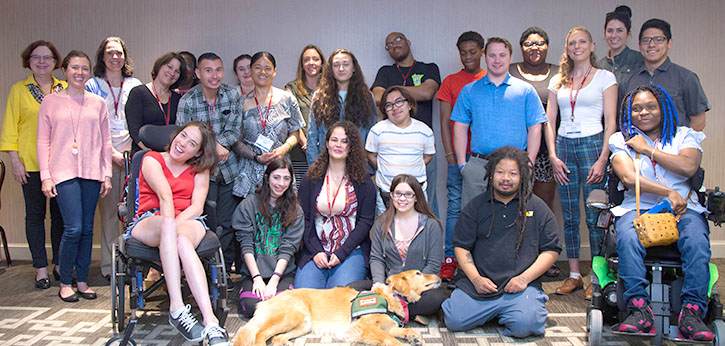IEL celebrates the 29th anniversary of the Americans with Disabilities Act protecting the civil rights of people with disabilities in every aspect of society, from education to employment.
On July 26, 1990, President George H.W. Bush signed into law the Americans with Disabilities Act (ADA), the most comprehensive set of laws that protect people with disabilities from discrimination in the U.S. Major federal and state policies have aligned with the ADA and other laws to improve the employment, education, and community and civic engagement of people with disabilities. Federal and state funding continues to support research, policy analysis, and practice to improve outcomes. The current generation of young people with disabilities, known as the “ADA Generation,” are born with their civil rights protected to participate in every aspect of society from education to employment.
While we celebrate the societal shifts that have resulted from the leadership of people with disabilities in policy and practice, more work is needed to address the challenges that remain. One of the most significant barriers preventing full inclusion of people with disabilities is the limited perceptions held by other people. At school or work, at the grocery store or the coffee shop, in an airport or in a restaurant, people with disabilities must continue to address other people’s limited perceptions of what they can do and what they have accomplished professionally.
IEL recognizes that disability is a key component of diversity and an important aspect of a person’s identity. Disability is intersectional, meaning that it is intertwined in all races, genders, sexual orientations, incomes, and religions. Therefore, people with disabilities must always be included in addressing challenges that all Americans face, such as healthcare, the opportunity to earn a living wage, and the right to an inclusive education. At IEL, we actively partner with and support young people with disabilities across the country to use their voices and to build capacity in youth leadership. The ADA Generation is critical to sustaining our country’s past successes and solving future challenges.
The Centers for Disease Control and Prevention recently reported that one in four Americans has a disability. What this means for IEL and our partners across the country is that we are all preparing youth and young adults for careers and community engagement. We challenge ourselves, our national partners, and our communities to recognize that their constituencies include people with disabilities and to work with us in creating change that is led by people with disabilities.
